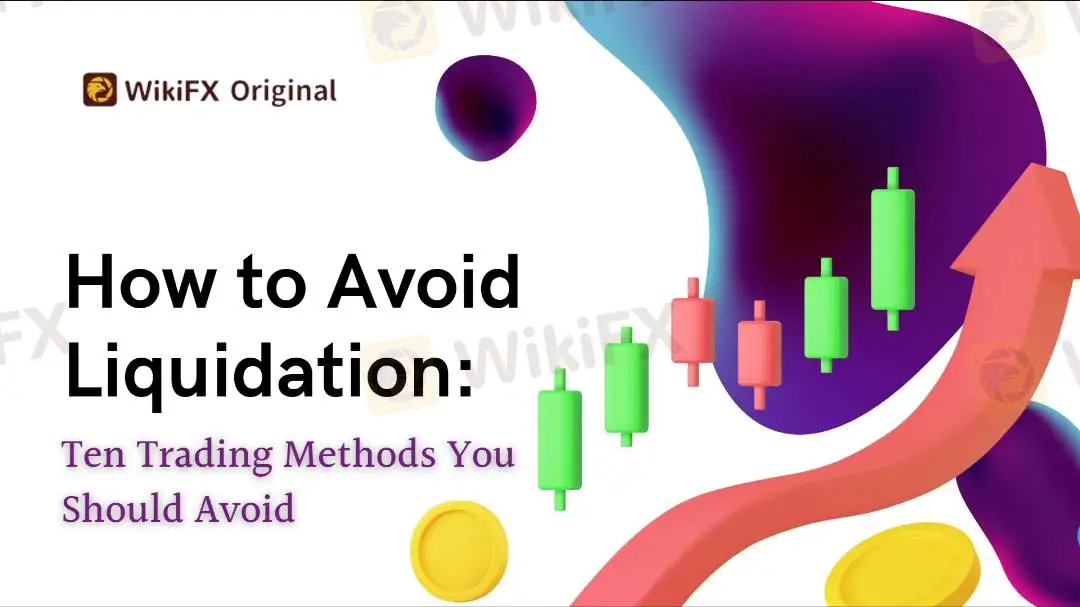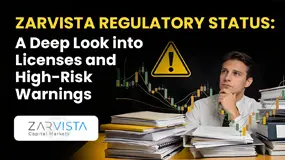Abstract:In trading, individuals often believe they are rational, but in reality, they frequently display irrational behavior. This is because investors in the market are not primarily seeking to maximize profits, but rather to maximize their psychological comfort.

In trading, individuals often perceive themselves as rational, but in reality, they frequently exhibit irrational behavior. This is because investors in the market are not primarily seeking to maximize profits, but rather to maximize their psychological comfort. Due to the inability to objectively confront oneself, traders often find themselves unaware of their actions when experiencing margin calls. Today, WikiFX will summarize ten common ways traders are most prone to margin calls in trading. As an investor, it is crucial to avoid these practices. The specific points are as follows:

Holding onto unrealized losses:
This approach is common among both beginners and experienced traders, and even some seasoned professionals can fall into this trap. The prevalence of this approach and its detrimental effects on many individuals stem from the hope and expectation associated with holding onto unrealized losses. When investors decide to cut their losses and stop out, not only do they incur financial losses but they also feel a sense of personal failure. This despair can have a significant impact on their trading.
Beginners may tolerate unrealized losses due to their ignorance, as they are not fully aware of the harsh reality of this approach and are easily overwhelmed. On the other hand, experienced traders may become overconfident, relying on their years of trading experience and assuming they can handle the ups and downs of the market. If their positions explode, they may simply accept it without actively reflecting on why they experienced a margin call, leading to a cycle of repeating the same mistakes. Many fundamental traders have also faced margin calls due to this approach.
Frequent stop-losses:
WikiFX have mentioned this approach before, and it is crucial to avoid frequent stop-losses. This is because frequent stop-losses can quickly erode investment capital, making it one of the primary ways traders experience losses. To illustrate, imagine driving on a highway with few other cars. The chances of needing to brake are minimal, and the driver feels comfortable even when driving at high speeds. Conversely, driving in a crowded city with frequent stops and the likelihood of accidents increases. If one continues to drive at high speeds and needs to brake frequently, accidents will likely occur.
The principle of stop-losses in trading is similar to braking while driving. If you engage in frequent trading (braking) at inappropriate times (in a crowded city), it will lead to frequent stop-losses (brakes). If you also maintain significant positions (driving at high speeds), a major accident is not far away.
Neglecting one thing while pursuing another:
This refers to the behavior of some experienced investors who, once they feel confident in their abilities, become dissatisfied with trading only one instrument. They start seeking out additional instruments to trade. However, they often end up selling the instrument they just bought when it doesn't rise immediately, and then buy other instruments. Unfortunately, as soon as they buy the new instruments, the ones they sold start rising. This leads to a cycle of constantly stopping out and chasing gains, ultimately exhausting themselves and depleting their funds.
Returning to square one:
This typically occurs among seasoned traders who have market experience and knowledge. Due to overconfidence and a tendency for risk-taking, they engage in high-stakes or heavily leveraged trades, resulting in substantial losses. This behavior stems from an inability to control their greed and risk appetite, as they consistently choose the wrong timing for their trades.
Excessive position sizing:
Speculative trading can amplify traders' greed. Often, when investors make a correct trade and witness their account profits slowly increasing, they start fantasizing about how much they could have earned if they were fully invested. After calculating the potential gains and listening to the advice of “gurus” advocating “adding to winning positions,” they start constantly increasing their position sizes. This can ultimately lead to margin calls and significant losses.
Overconfidence:
Many individuals tend to make premature market predictions, believing they can forecast where prices will rise or fall. While some experts advise against making predictions and suggest following the market instead, it appears to be correct on the surface. However, if traders solely rely on following the market without making their own predictions, they often end up losing track.
In reality, prediction is a part of trading, but the key to successful profit-taking and stop-loss lies in not stubbornly adhering to predictions and being prepared to correct them. Traders who like to rely on their own intelligence repeatedly follow their predictions, reinforce them, and end up piercing one support level after another or breaking one resistance level after another. The result is often the loss of their funds.
Small gains, big losses:
In the market, these individuals often display accurate judgment and seize opportunities when the market starts moving. However, for some unknown reason, they tend to encounter significant losses in trades that were supposed to yield substantial profits. These individuals tend to exit the market after making a small profit, and then, instead of following the trend and capitalizing on its continuation, they go against the trend and experience continuous stop-losses and losses.
Adding to losing positions:
Instead of cutting their losses, individuals in this category refuse to stop-loss and hope to average down or recover their losses by adding to their positions. While this strategy might work in the stock market, the success rate is relatively low in the futures and forex markets. In most cases, this approach only worsens the situation, turning small losses into significant ones and resulting in devastating losses. Lowering the average cost is a strategy that even experienced traders may attempt, but it requires skilled execution and cautious use.
However, many inexperienced investors approach this strategy with a sense of luck and blindly employ it, often leading to even more disastrous outcomes.
Excessive reliance on “gurus”:
The temptation to believe in “gurus” is indeed hard to resist. After all, these “gurus” are often surrounded by a mysterious aura, and there are indeed highly successful individuals in the investment market. However, for novice traders entering the speculative market, a significant portion of them approach it with a mindset of wanting to gain something for nothing, thinking that by following a particular “guru,” they can easily make money. It is precisely because of this mindset that the market has given rise to many fake “gurus” who aim to deceive them, and unfortunately, these fake “gurus” are prevalent in the market.
In reality, even for truly skilled “gurus,” making money is not an easy task. They often encounter extended periods of no profits or even losses. Seasoned traders consider this normal, but for followers, it appears abnormal. It's like the “guru” being your trading system, and for a period of time, the signals it generates are all incorrect, and then you stop believing in it.
However, once you stop believing, the system starts generating profitable signals, but you no longer follow them. As a result, the system continues to make profits while you are left in a state of losses.
Believing in various rumors and hearsay:

These traders typically fall into the category of novices. They tend to join various WhatsApp groups, Telegram groups, and similar platforms, where they are unable to discern what is accurate information. As a result, they rely on the messages shared within these groups, often leading to losses without even realizing it.
These are the ten common ways that can lead to failure in trading. Whether you are a novice or an experienced trader, it is important to avoid these mistakes to prevent significant losses. The trading market is inherently risky, but by maintaining rationality, caution, and continuously improving your trading skills, you can achieve success in the market.












